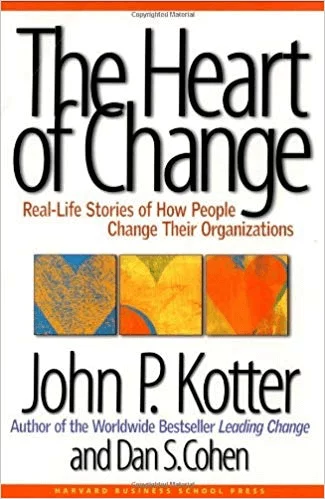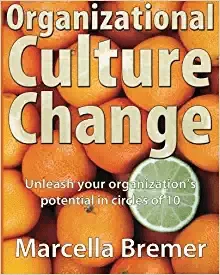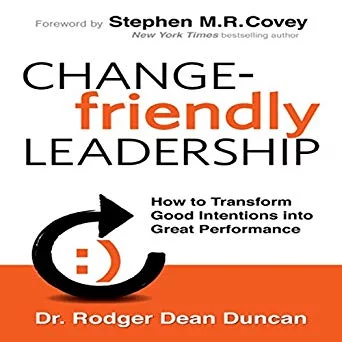
The principles of change management are logical, but the practical implementation is far from easy.
Research suggests close to 70 percent of change initiatives fail, owing to the fast paced nature of today’s business landscapes.
Change management is designed to mitigate the disruption when organizations transition into new horizons. With this being said, many companies are left wondering how to best go about forging an effective strategy.
Implementing a successful change management strategy requires careful preplanning and due diligence. It is a maturing field which has never been more important, but cutting through vast fields of information is no easy task.
To help you on route to successful implementation, you’d be wise to capitalize on one of many fantastic change management books. Scanning the available literature is a great way to enhance your understanding.
This will help you establish knowledge you can tailor to your individual needs and circumstances. It’s great to extract relevant literature, applying what’s most relevant to your situation while remembering to keep things fun.
Change doesn’t have to be boring, and to spice things up you can capitalize on fantastic games and activities.
Here are 3 great change management books which will serve as inspiration as you transcend through a new business environment.
In addition to the swathe of literature available, there are many tools and techniques which are beneficial to master.
The Heart of Change: Real-Life Stories of How People Change Their Organizations – Written by John P. Kotter and Dan S. Cohen in 2012

Image source: Amazon
The modern approach to change management rightfully addresses people’s behavior and general attitudes.
Change was once perceived as a string of operational processes, but from an all-encompassing perspective there is so much more to consider.
You can have the best change strategy in the world, but if they’re not fully endorsed by your team what good are they?
Humans are hard-wired to resist change, so it’s crucial for organizations to address behavioral implications when new processes are thrust upon staff.
Fortunately this book has been designed to do just that. Consider change from the people’s point of view, where a psychological overview is necessary to truly empathize with your team.
John Kotter and Dan Cohen are renowned experts in the change field. In fact, Kotter’s 8-step change model is a fundamental approach to change which has shaped the field.
This book is based on behavioral change, and how initiatives within behavioral criteria can secure buy-in from stakeholders.
It is based on the power of inspiring emotional responses and creatively showcasing the power of change.
By appealing to the emotional needs of your team, they’ll be incentivized into action, and encouraged by a dynamic which ultimately drives success.
Organizational Culture Change: Unleashing your Organization’s Potential in Circles of 10 written by Marcella Bremer and Marcel Lamers in 2012

Image source: Amazon
It is essential you can develop and sustain a progressive organizational culture. If your team are encouraged to embrace change as a core competency, their positive attitude towards change can be leveraged for great effect.
Where so many organizations fail, you can differentiate by focusing on leadership, culture, and the ability to change performance.
This book encourages you to sway from an overly conceptual, coercive strategy which can disenfranchise and disillusion your team.
Instead, it was written to help companies take a 21st century approach to change. This involves an organizational culture assessment, which uses the Competing Values Framework established by Cameron and Quinn.
This is a great foundation for future progress, which can be built on by engaging in ‘change circles’. Organizations can consequently copy, coach, and correct behavior on a case-by-case basis, understanding personal and departmental differences.
By engaging with your team on a peer basis, you can live and breathe change and lead your team to great things.
If you’re looking for a progressive take on change management, you’ll certainly appreciate this literature as one of the leading change management books on the market.
Change-Friendly Leadership: How to Transform Good Intentions into Great Performance written by Rodger Dean Duncan and Stephen M. R. Covey in 2012

Image source: Amazon
In a world that requires businesses to be flexible and readily adaptive to change, organizations are slowly learning the importance of change management.
Despite good intentions, organizations often fail to appreciate the infrastructure and in-depth approach necessary to facilitate positive change.
Many programs do not succeed, and this books assesses why. This is a great way to bring the reader’s attention to mistakes.
By doing so, they can understand what’s best avoided, and how they can implement safeguards to deal with errors if they arise.
Mistakes which are tackled throughout this book include friendliness, approachability, and humanness.
These are necessary but often overlooked elements of change. When organizations cater to these elements, change processes have a better chance of surviving the long haul.
This is one of many change management books which stresses the importance of a united participation of employees. This involves engaging you team, who should proactively contribute and feel involved.
The book preferences initiatives which ensure teams are invested in change and are on the same page.
WalkMe Team
WalkMe spearheaded the Digital Adoption Platform (DAP) for associations to use the maximum capacity of their advanced resources. Utilizing man-made consciousness, AI, and context-oriented direction, WalkMe adds a powerful UI layer to raise the computerized proficiency, everything being equal.



